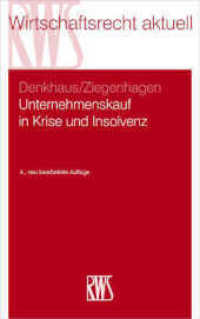Full Description
This book critically and reflectively engages with the 'Language Problem' in the contemporary multilingual university. It paints a complex picture of the lived multilingual realities of teachers and students in universities across geographies such as Pakistan, Timor-Leste, South Korea, Bangladesh, Somaliland, Afghanistan, Fiji, Colombia, and the UK (including Northern Ireland) and focuses on three overall analytic themes: language and colonial epistemologies, language policies and practices, and language and research.
Globalisation, global knowledge economy, and neoliberal governance has significantly impacted higher education by elevating colonial languages, particularly English, to a global academic lingua franca. Universities now collaborate and compete globally, with English emerging as the dominant language for education and research. The imposition, or uncritical adoption, of English poses profound political, cultural, and epistemic challenges for those who have to use the language in everyday university administration, research, and teaching and also intertwines with issues of race, gender, coloniality, and social class. This volume addresses this as higher education's multifaceted Language Problem which requires interdisciplinary collaboration and critical debate, and ultimately aims towards understanding multilingualism in higher education across both the Global North and South.
The contributions to this book continue to remind us of the coloniality of language and of the linguistic stratification that governs epistemological structures and power relations in the academy. It will be of interest to scholars, researchers, and practitioners of higher education, applied linguistics, education policy and politics, and sociology of education. This book was originally published as a special issue of the journal Teaching in Higher Education.
Contents
Introduction: Critical perspectives on teaching in the multilingual university 1. Whither epistemic (in)justice? English medium instruction in conflict-affected contexts 2. Epistemic outcomes of English medium instruction in a South Korean higher education institution 3. Indigenous students' agency vis-à-vis the practices of recognition and invisibilization in a multilingual university 4. Overt and symbolic linguistic violence: plantation ideology and language reclamation in Northern Ireland 5. Beyond coloniality and monolingualism: decolonial reflections on languages education / Mas allá de la colonialidad y el monolingüismo: reflexiones decoloniales sobre la enseñanza de lenguas 6. Linguistic ecology of Bangladeshi higher education: A translanguaging perspective 7. Celebratory or guilty multilingualism? English medium instruction challenges, pedagogical choices, and teacher agency in Pakistan 8. The scramble for EMI: lessons from postcolonial 'old EMI' universities 9. Conceptualising multilingualism in higher education in Timor-Leste: the case of petroleum studies 10. Contortion, loss and moments for joy: insights into writing groups for international doctoral students 11. Opening up spaces for researching multilingually in higher education






